Mitochondrial dysfunction and oxidative stress play a role in the development of a number of endocrine disorders. Accordingly, it is logical that Coenzyme Q10 should be important in the prevention and treatment of these disorders [Aaseth 2021].
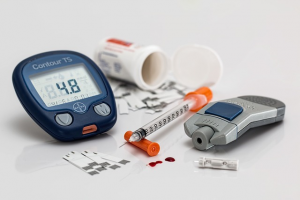
A survey of the research evidence for endocrine disorders shows that patients with type II diabetes, with male infertility, and with hyperthyroidism most likely will benefit from CoQ10 supplementation.
Note: Mitochondrial dysfunction equals sub-optimal generation of cellular ATP energy. Oxidative stress equals damage to cells and tissues caused by harmful free radicals.
Coenzyme Q10 is essential to the proper functioning of the mitochondria in the generation of ATP energy. Moreover, Coenzyme Q10 protects the cells against the oxidative damage that is otherwise caused by harmful free radicals [Aaseth 2021].
Mantle & Hargreaves have reviewed the role of CoQ10 deficiency and supplementation in disorders of the thyroid, pancreas, gonads, pituitary, and adrenals. In particular, they have focused on hyperthyroidism, type II diabetes, and male infertility [Mantle & Hargreaves 2023].
CoQ10 and thyroid function
Hyperthyroidism and hypothyroidism, overactivity and underactivity of the thyroid respectively, are the most common disorders of the thyroid gland. Graves’ disease, a form of autoimmune hyperthyroidism in which autoantibodies target the thyrotropin receptor, results in the overproduction of thyroid hormones and damage to the thyroid.

Dr. Jan Olav Aaseth, specialist in internal medicine and endocrinology, is the guest author on this review article. Professor Aaseth has written extensively about CoQ10 supplementation in ageing and disease.
Hypothyroidism, typically Hashimoto’s disease, also resulting from autoimmune damage to the thyroid, is characterized by autoantibodies directed against thyroid peroxidase and thyroglobulin.
Mantle and Hargreaves [2023] explain the importance of Coenzyme Q10 in thyroid disorders as follows:
- The thyroid hormone triiodothyronine accumulates in the mitochondria. It exerts a direct effect on mitochondrial activity and energy metabolism.
- Hyperthyroid conditions accelerate the effect of triiodothyronine on basal cellular metabolism and result in an increased production of harmful free radicals, creating more oxidative stress in the cells.
- Numerous studies have shown that there are significantly reduced blood concentrations of Coenzyme Q10 in patients with hyperthyroidism, which means less antioxidant protection against free radical damage. In some cohorts of patients with hyperactive thyroid disorders, the plasma CoQ10 levels have been as low as 0.28, 0.37, and 0.46 mg/L. Normal healthy plasma CoQ10 concentrations are approximately 1.00 mg/L.
- Possible causes for the low tissue levels of CoQ10 in hyperthyroid patients include (1) decreased CoQ10 bio-synthesis caused by a competition for tyrosine, which is needed for the bio-synthesis of both Coenzyme Q10 and thyroxine, (2) depleted of CoQ10 reserves caused by the increased oxidative stress associated with hyperthyroidism, (3) decreased levels of lipoprotein CoQ10 carriers in blood.
- CoQ10 deficiency may be a factor in complications of hyperthyroidism, including heart failure. Some pre-clinical evidence indicates that CoQ10 supplementation could perhaps improve heart performance in patients with hyperthyroidism.
- It is notable that the diminished metabolic activity induced by hypothyroidism leads to a decrease in free radical production. Not surprisingly, patients with hypothyroidism tend to have circulatory levels of Coenzyme Q10 similar to the levels in normal healthy subjects.
CoQ10 and type II diabetes
Type II diabetes results when the body is unable to respond adequately to insulin. Patients with type II diabetes have an increased risk of cardiovascular disease, kidney disease, and eye disorders. Mitochondrial dysfunction, oxidative stress, and chronic low-grade inflammation are present in the development of type II diabetes. Accordingly, there is a rationale for supplementation with Coenzyme Q10.
Mantle & Hargreaves suggest that supplemental Coenzyme Q10 could benefit patients with type III diabetes in several ways:
- improves the cellular energy levels needed for glucose metabolism
- protects cells by acting as an antioxidant
- modulates the expression of genes related to glucose metabolism
Studies show that blood CoQ10 levels are reduced in patients with type II diabetes. Several randomized controlled trials have shown the following outcomes of supplementation with Coenzyme Q10 [Mantle & Hargreaves [2023].
- Sixteen randomized controlled trials of CoQ10 supplementation of patients with type II diabetes have been published in the medical literature. Typically, the researchers have administered 100-200 mg/day for 3-6 months in these trials.
- Eleven of the 16 studies have reported the effect of supplemental Coenzyme Q10 on glycemic control. Six studies showed significant improvements in blood glucose and/or HbA1c levels. Five studies reported no significant improvement in one or both of these parameters [Mantle & Hargreaves 2023].
- Five of the 16 studies showed decreases levels of bio-markers for oxidative stress in patients with type II diabetes.
Note: The term glycemic control refers to efforts to keep blood glucose levels close to target levels in a safe way. Even if CoQ10 supplementation does not improve glycemic control, the existing studies show that it is safe for patients with type II diabetes to take CoQ10 supplements for the purpose of improve their heart health by reducing oxidative stress and inflammation and by improving endothelial function.
Mantle & Hargreaves [2023] have also identified five meta-analyses relating to Coenzyme Q10 and type II diabetes. The meta-analyses show, variously, CoQ10 supplementation associated with reduced fasting blood glucose, improved HbAc1 levels, and decreased bio-markers of oxidative stress.
Coenzyme Q10 and infertility
Infertility can be thought of as the inability of a woman to become pregnant over the course of one year during which she has had regular unprotected intercourse. The best estimate is that infertility affects 10-20% of couples. Male infertility seems to be the cause of approximately 50% of the failure to achieve pregnancy.
Coenzyme Q10 and female infertility
Reduced female fertility has been associated with mitochondrial dysfunction in oocytes (the cells that develop into the female’s eggs). Researchers have proposed both mitochondrial dysfunction and oxidative stress as factors in women with reduced ovarian reserve or poor ovarian response [Mantle & Hargreaves 2023].
A study enrolling 15 women aged 31 – 46 years who were undergoing in-vitro fertilization has shown that daily supplementation with 200 mg of Coenzyme Q10 for one month increased the antioxidant capacity of follicular fluid and improved oocyte quality [Giannubilo 2018].
Coenzyme Q10 and male infertility
Researchers have not yet completely explained the development of male infertility. However, the effect of mitochondrial dysfunction and oxidative stress on the quality of seminal fluid is a factor. Several studies have reported significantly reduced levels of Coenzyme Q10 in the semen from patients with asthenozoospermia (= having slow moving sperm or lazy sperm).
There have been 10 randomized controlled trials of CoQ10 supplementation – Coenzyme Q10 alone or in combination with other micronutrients – of infertile men. Generally, the studies show improved sperm parameters: improved sperm motility, sperm density, sperm shape [Mantle & Hargreaves 2023].
Good candidates for combination with Coenzyme Q10 include plus L-carnitine, L-arginine, glutathione, zinc, vitamin B9 , vitamin B12 and selenium. A fair trial of CoQ10 supplementation of men with infertility issues would involve a daily dose of 200-300 mg taken in 100 mg doses with separate meals for a duration of at least three months.
Mantle & Hargreaves [2023] point out that three meta-analyses have shown the effectiveness of supplemental Coenzyme Q10 for the treatment of male infertility. In all three meta-analyses, the CoQ10 supplementation resulted in improved sperm concentration, morphology and motility.
Conclusion: Coenzyme Q10 and endocrine disorders
Hyperthyroidism, type II diabetes, and male infertility are the most researched endocrine disorders with respect to CoQ10 treatment [Mantle & Hargreaves 2023].
- Hyperthyroid patients have substantially reduced blood levels of Coenzyme Q10. Pre-clinical research and one small clinical study suggest that CoQ10 supplementation may improve heart function in patients with hyperthyroidism.
- Studies of CoQ10 supplementation of patients with type II diabetes have been shown variable results. Some studies report significant benefit for glycemic control. Other studies report no significant benefit but also no harm. Thus, the research evidence shows that CoQ10 supplementation is safe for patients with type II diabetes who want to improve parameters related to heart health such as oxidative stress, inflammation, and endothelial function.
- Studies consistently demonstrate significant benefits of CoQ10 supplementation in male infertility. Sperm morphology, sperm density, and sperm motility improve with CoQ10 supplementation.
Sources
Aaseth J, Alexander J, Alehagen U. Coenzyme Q10 supplementation – In ageing and disease. Mech Ageing Dev. 2021 Jul;197:111521.
Giannubilo SR, Orlando P, Silvestri S, Cirilli I, Marcheggiani F, Ciavattini A, Tiano L. CoQ10 Supplementation in Patients Undergoing IVF-ET: The Relationship with Follicular Fluid Content and Oocyte Maturity. Antioxidants (Basel). 2018 Oct 13;7(10):141.
Mantle D, Hargreaves IP. Coenzyme Q10 and endocrine disorders: an overview. Antioxidants. 2023;12:514.
The information presented in this review article is not intended as medical advice and should not be used as such.


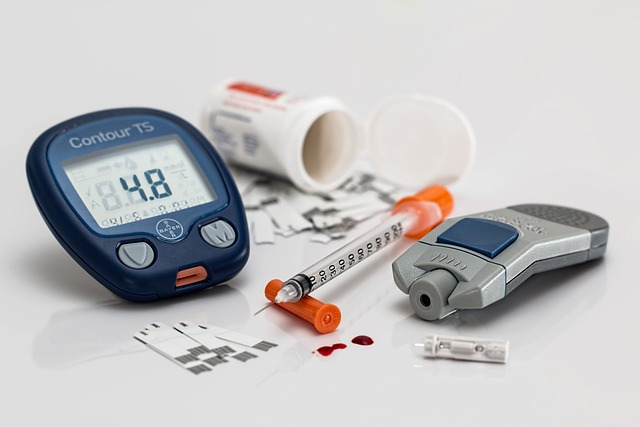
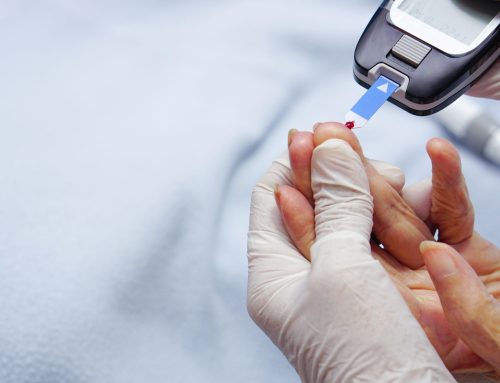
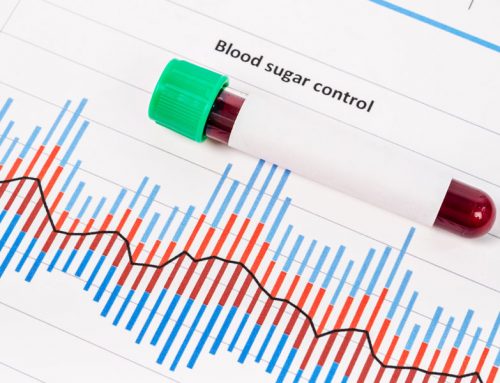
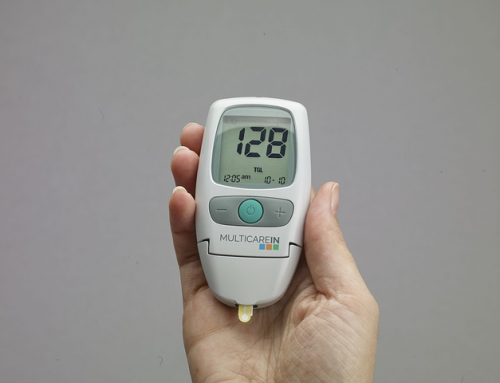
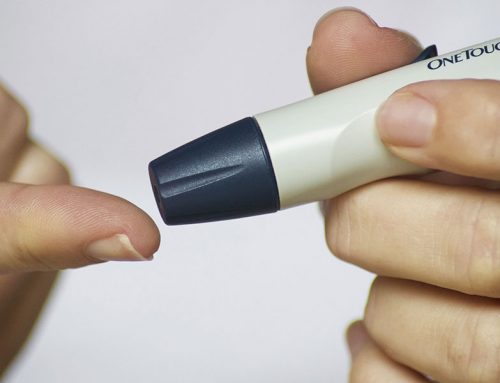

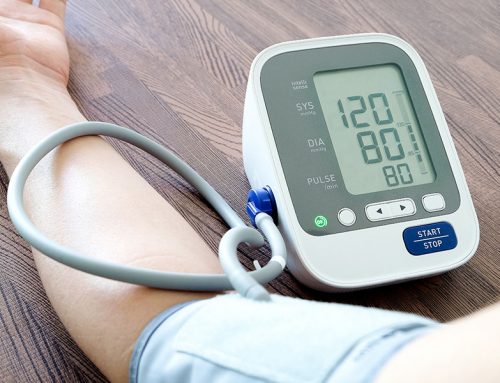
Leave A Comment